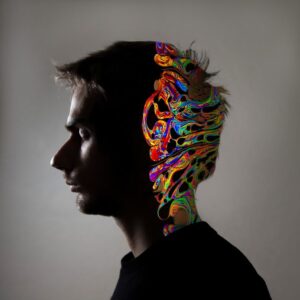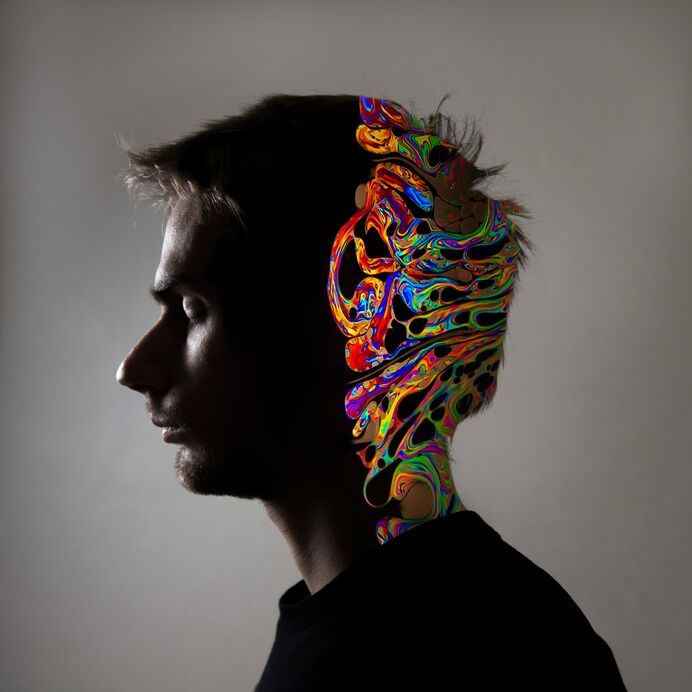
There seems to be a full court press of articles on the renaissance of clinical research into psychedelic substances. NPR had a segment on their program Short Wave. Salon published an article on how researchers are studying psychedelics all wrong. The New York Times published an article describing a new study that showed where MDMA-assisted therapy resulted in 67% of the participants no longer qualified for a diagnosis of PTSD. You can even find receptive discussions of psychedelics by H. Steven Moffic and Tiago Merques on Psychiatric Times and an article on a presentation of this research at the 2021 APA Annual Meeting. Welcome to psychedelic psychiatry.
The takeaway from the NPR broadcast, “The Resurgence of Psychedelic Psychiatry” was that we are “at the beginning of a new era.” Dr. Moffic presented a breezy history of research with psychedelics in “The Trip Resumes for Psychedelics, Psychiatry, and Society” and said the topic required more careful study. Merques noted the trial was testing the drug plus assisted psychotherapy. He acknowledged this was very different from normal FDA studies.
The NYT article, “Looking to the Future of MDMA-Assisted Psychotherapy,” highlighted the work of Rick Doblin and MAPS, the Multidisciplinary Association for Psychedelic Studies, in bringing MDMA-assisted therapy through the FDA approval process. Doblin was the senior author of “MDMA-assisted therapy for severe PTSD,” recently published in the prestigious journal, Nature Medicine. The presentation at the 2021 APA Annual Meeting, “Looking to the Future of MDMA-Assisted Psychotherapy,” reviewed the results described in the Rick Doblin article and quoted one of the presenters as saying, “The future is here.”
The MAPS efforts with MDMA-assisted therapy to treat PTSD is getting the most press and interest at this time. Jennifer Mitchell, who was the lead author of “MDMA-assisted therapy for severe PTSD,” said in the NYT article, “This is a wonderful, fruitful time for discovery, because people are suddenly willing to consider these substances as therapeutics again, which hasn’t happened in 50 years.” Doblin added that it wasn’t the MDMA that produced the therapeutic effect, “it’s the therapy enhanced by the drug.” MDMA combined with therapy was thought to allow the brain to process painful memories and heal itself.
For this process to work, a person must be primed to engage with their trauma. Participants first undertook preparatory sessions with two trained therapists. Then in three sessions of eight-hours each, spaced a month apart, they received either an inactive placebo or MDMA. Neither the participants nor the therapists knew which. While most participants correctly guessed whether they received a placebo or MDMA, this did not undermine the study’s results or its methodology, which was agreed to in advance by the F.D.A.
“MDMA-assisted therapy for severe PTSD,” concluded from their results that MDMA-assisted therapy could be a potential breakthrough therapy. The authors speculated that the pharmacological properties of MDMA, when combined with therapy, could produce a ‘window of tolerance,’ where participants could revisit and then process traumatic events without becoming overwhelmed. The acute prosocial and interpersonal effects of MDMA seem to support the quality of the therapeutic alliance, “a potentially important factor relating to PTSD treatment adherence and outcome.” They even found it effective with comorbid issues such as childhood trauma, depression and dissociation.
PTSD is a particularly persistent and incapacitating condition when expressed in conjunction with other disorders of mood and affect. In the present study, perhaps most compelling are the data indicating efficacy in participants with chronic and severe PTSD, and the associated comorbidities including childhood trauma, depression, suicidality, history of alcohol and substance use disorders, and dissociation, because these groups are all typically considered treatment resistant. Given that more than 80% of those assigned a PTSD diagnosis have at least one comorbid disorder, the identification of a therapy that is effective in those with complicated PTSD and dual diagnoses could greatly improve PTSD treatment. Additional studies should therefore be conducted to evaluate the safety and efficacy of MDMA-assisted therapy for PTSD in those with specific comorbidities.
The Salon article, “Why mental health researchers are studying psychedelics all wrong,” was written by two psychedelic advocates who said they have worked for decades with thousands of people. They questioned whether the current mental health industry was the place for psychedelic drugs. There is a history of supposed breakthrough modalities that would bring psychiatry into the realm of medical science. “Yet none of these claims have demonstrated a high benchmark of legitimate authority, and many have even been harmful.” The authors thought there would be a substantial loss when psychedelics were medicalized.
The model for introducing psychedelics into a medical framework is being defined by the Multidisciplinary Association for Psychedelic Studies (MAPS), the most visible and politically connected psychedelic organization. Their flagship research project is using MDMA, a psychostimulant, to treat Post Traumatic Stress Disorder (PTSD), a diagnosis that has become increasingly common. Its public association with war vets and sexual abuse survivors makes PTSD the perfect public relations focus for psychedelics as the next medical breakthrough.
If psychedelics hold promise, the authors said, it may be a result of the drugs not working in a linear fashion or providing overnight results. They can lead people on paths of self-inquiry and growth that don’t become evident until years later. As Robert Whitaker pointed out, this doesn’t fit with a medical model that gets FDA approval. The reductive research of the FDA process requires a strict protocol that leads to replicable changes for anyone with a given diagnosis. “Why do you need a doctor for that? Why do you go to medical school for that?”
There is a need for research into psychedelics as they present an opportunity to recontextualize how we think about and experience suffering. However, drowned in the media hype of psychedelic advocacy organizations and the mental health industry, there is little public discourse about the potential implications of moving psychedelics into a system with such a problematic history.
The medicalization of psychedelics raises several questions about psychopharmacology and psychiatry. With psychedelics, their sensitivity to set and setting—the psychological and physical environments of their consumption—has been known for a long time. This compels researchers to consider the context as a variable when measuring the effectiveness of psychedelic substances. Does this mean that the FDA is moving away from its essentialist methodology for drug approval? A double-blind methodology can’t be implemented, effectively neutralizing this “gold standard” of scientific investigation embedded in the FDA’s methodology. Rick Doblin acknowledged this above when he admitted that most participants correctly guessed whether or not they received a placebo or MDMA.
If MDMA-assisted therapy ever achieves FDA approval to treat PTSD, it will challenge the scientific foundation upon which Western drug testing has depended for decades. Assuming the FDA ultimately approves MDMA-assisted therapy, does this signal the agency’s willingness to modify its clinical trial protocols for other potential “breakthrough” therapies? Will we be able to trust that the findings of a flexible methodology are truly scientific? In its pursuit of the next breakthrough therapy, is psychiatry moving away from a consistently scientific evaluation of its effectiveness? Michael Pollan, in his best-selling book, How to Change Your Mind, made similar observations:
Western science and modern drug testing depend on the ability to isolate a single variable, but it isn’t clear that the effects of a psychedelic drug can ever be isolated, whether from the context in which it is administered, the presence of the therapists involved, or the volunteer’s expectations. Any of these factors can muddy the waters of causality. And how is Western medicine to evaluate a psychiatric drug that appears to work not by means of any strictly pharmacological effect but by administering a certain kind of experience in the minds of people who take it?
For one future psychiatrist, his youthful LSD trip led to an insight that focused his attention on psychopharmacology. Jeffrey Lieberman is the Chairman of the Department of Psychiatry at Columbia University, and a former president of the American Psychiatric Association. In his book Shrinks: The Untold Story of Psychiatry, he described how an LSD trip played a role in his professional development. In 1968, as a junior at Miami University in Oxford Ohio, Lieberman decided to try LSD.
He jotted down notes on his insights while tripping, expecting to revisit “these profound pearls of wisdom” once the drug wore off. Afterwards, he found his notes either “boringly mundane” or “ludicrously nonsensical.” He learned that “Just because a person believes he is having a cosmic encounter—whether because of drug or mental illness—it doesn’t mean he is.” However, there was one lasting insight for which he is still grateful.
Though my LSD-fueled reverie dissipated with the light of the morning, I marveled at the fact that such an incredibly minute amount of a chemical—50 to 100 micrograms, a fraction of a grain of salt—could so profoundly affect my perceptions and emotions. It struck me that if LSD could so dramatically alter my cognition, the chemistry of the brain must be susceptible to pharmacologic manipulation in other ways, including ways that could be therapeutic.
Lieberman’s LSD experience led him to become a biological psychiatrist and not a surgeon or neurologist. Yet, his generation of psychiatrists has failed to discover the underlying causes of mental illnesses. And now it seems psychiatrists are turning back to see if psychedelics can be used as medicine. What a long, strange trip it has been for psychedelic psychiatry.





